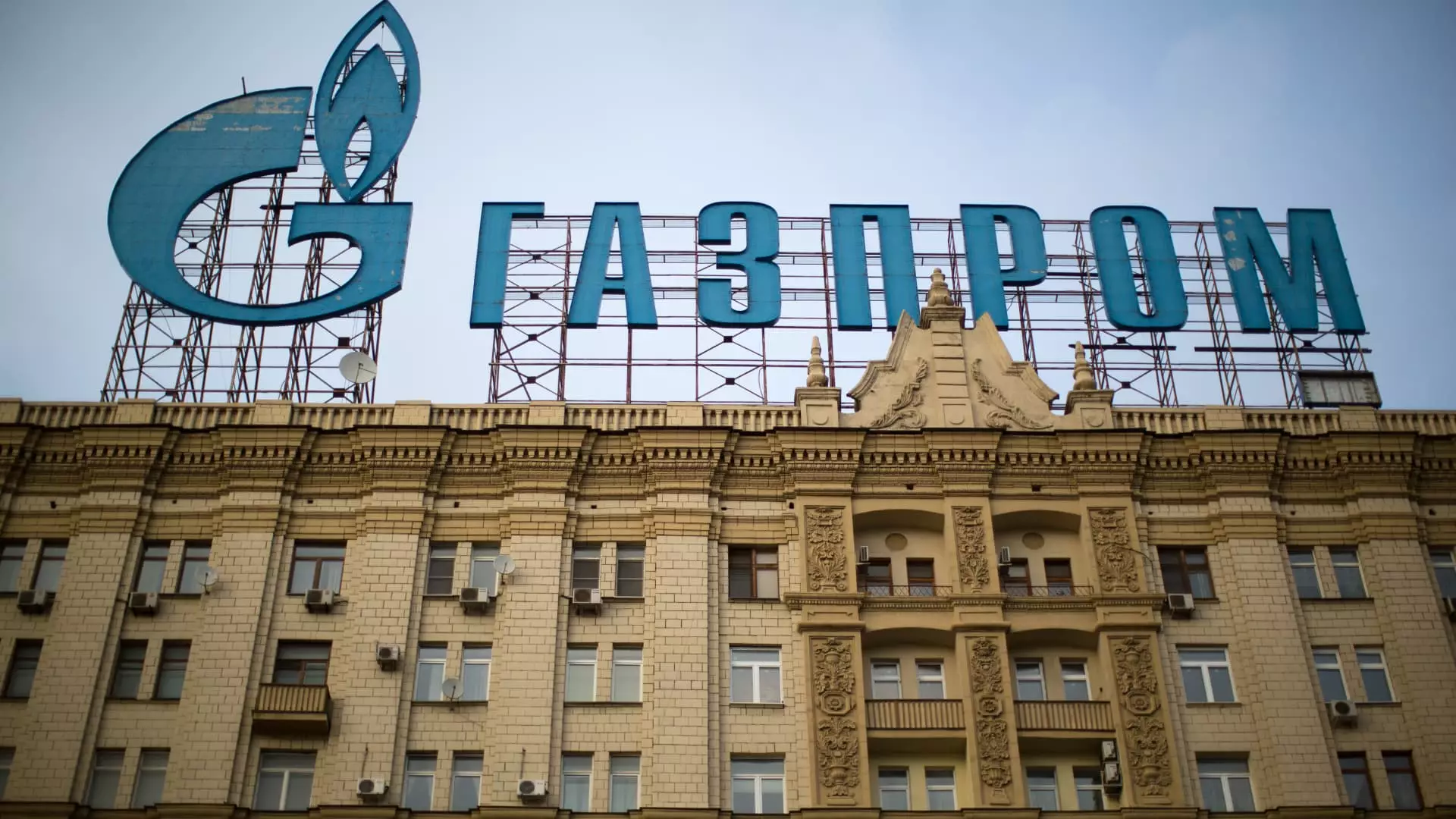The geopolitical landscape of Eastern Europe is marked by new challenges and tensions, particularly in the context of energy supply and dependency. Recent developments concerning Moldova demonstrate this intricate web of energy politics, as Russia’s state-owned gas giant, Gazprom, announced plans to cease gas deliveries to the country beginning January 1. This decision, attributed to alleged unpaid debts, raises significant concerns for Moldova, which has already been grappling with energy security amid a turbulent situation exacerbated by the ongoing conflict in neighboring Ukraine.
The contention at the heart of Gazprom’s decision rests on claims that Moldova owes approximately $709 million for past gas supplies. However, this figure is fiercely contested by the Moldovan government, which insists that international audits conducted by British and Norwegian firms establish the debt at closer to $8.6 million. Prime Minister Dorin Recean has categorically rejected Gazprom’s claims, referring to their debt assertion as “invalidated” and suggesting that it is part of a broader strategy to exert pressure on Moldova.
This energetic standoff poses critical questions about the validity of these financial claims and the mechanisms available to small nations when dealing with such powerful entities as Gazprom. The Moldovan government is exploring various legal avenues, including the possibility of lodging a case for international arbitration, to mitigate the potential fallout from Gazprom’s anticipated supply halt.
The most immediate consequence of Gazprom’s decision is the expected halt in gas supplies to the Kuciurgan power plant, Moldova’s largest energy facility located within the pro-Russian Transnistria region. This plant plays a crucial role in providing electricity to a considerable segment of Moldovan society. With winter approaching, the implications of losing access to this energy source are severe; Moldova faces the prospect of significant power shortages and a crippled energy infrastructure.
In response to the crisis, Moldova’s parliament has preemptively declared a state of emergency within the energy sector, a measure aimed at enabling swift governmental action to mitigate the situation. Emergency measures include a series of initiatives to conserve energy, such as restricting lighting in public and commercial buildings and adjusting the operating hours for energy-intensive industries.
In light of these developments, Moldova has voiced strong criticisms of Russia, accusing Moscow of weaponizing energy supplies as a means of exerting control over its former Soviet satellite. Moldova’s westward shift, highlighted by its new pro-European leadership and aspirations to secure a path toward European Union membership, seems to be a significant factor in Russia’s maritime strategy.
Moldova’s pivot away from Russian gas dependency has been prevalent since the Russian invasion of Ukraine. Efforts to diversify energy sources have intensified, with initiatives to tap into alternatives such as liquefied natural gas (LNG) from the U.S. and Qatar, which is crucial given the heightened geopolitical risks in the region. This diversification strategy not only aims to enhance energy security but also positions Moldova firmly against Russian influence.
The situation in Moldova has regional ramifications too. Transnistria, an unrecognized breakaway region that has historically maintained close ties with Russia, has also declared a state of emergency amid fears of reduced gas supplies. The interconnectedness of Moldova’s energy infrastructure underscores the vulnerabilities it faces, particularly as external pressures mount.
As the impending winter approaches, the Moldovan government must navigate a delicate balance between managing immediate energy needs and pursuing long-term strategies for energy independence. Moldova’s citizens, already facing economic hardships, may soon experience the deeper consequences of geopolitical maneuvers that they have little power to influence.
Gazprom’s decision to halt gas supplies to Moldova marks a critical juncture in Eastern Europe’s energy dynamics. With Moldova’s aspirations for European integration at stake, the actions taken in the coming months will be pivotal not only for the country itself but also for the broader regional geopolitical context. Moldova’s ability to respond effectively to this energy crisis will undoubtedly set a precedent for how former Soviet republics engage with energy diplomacy and assert their sovereignty in an increasingly fraught geopolitical landscape.

Leave a Reply